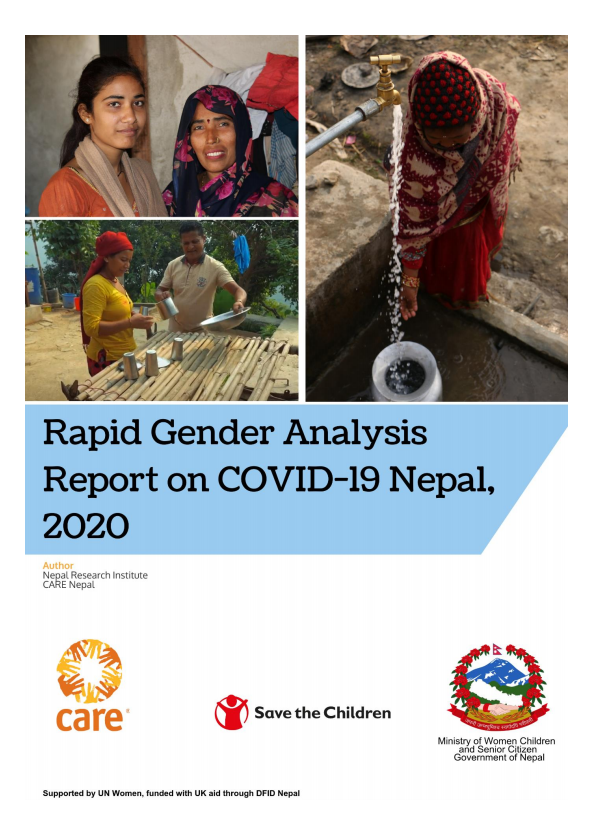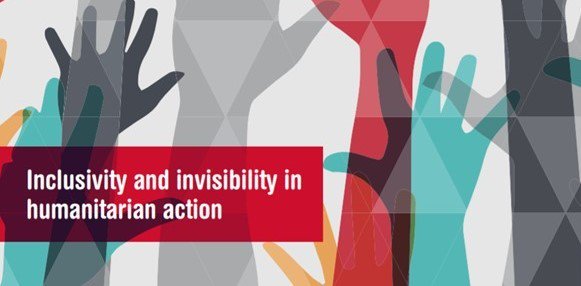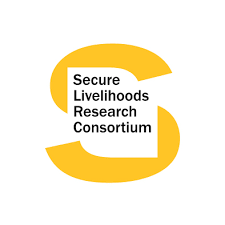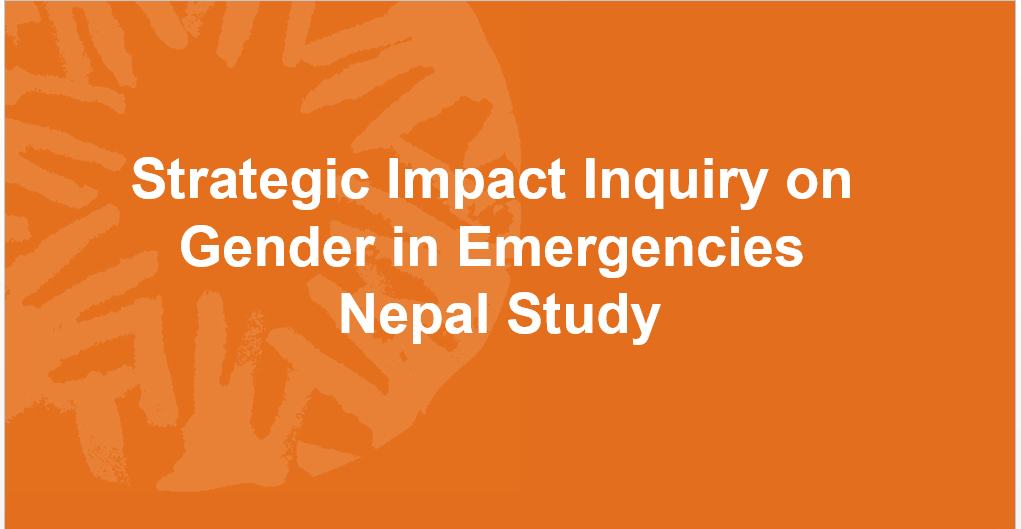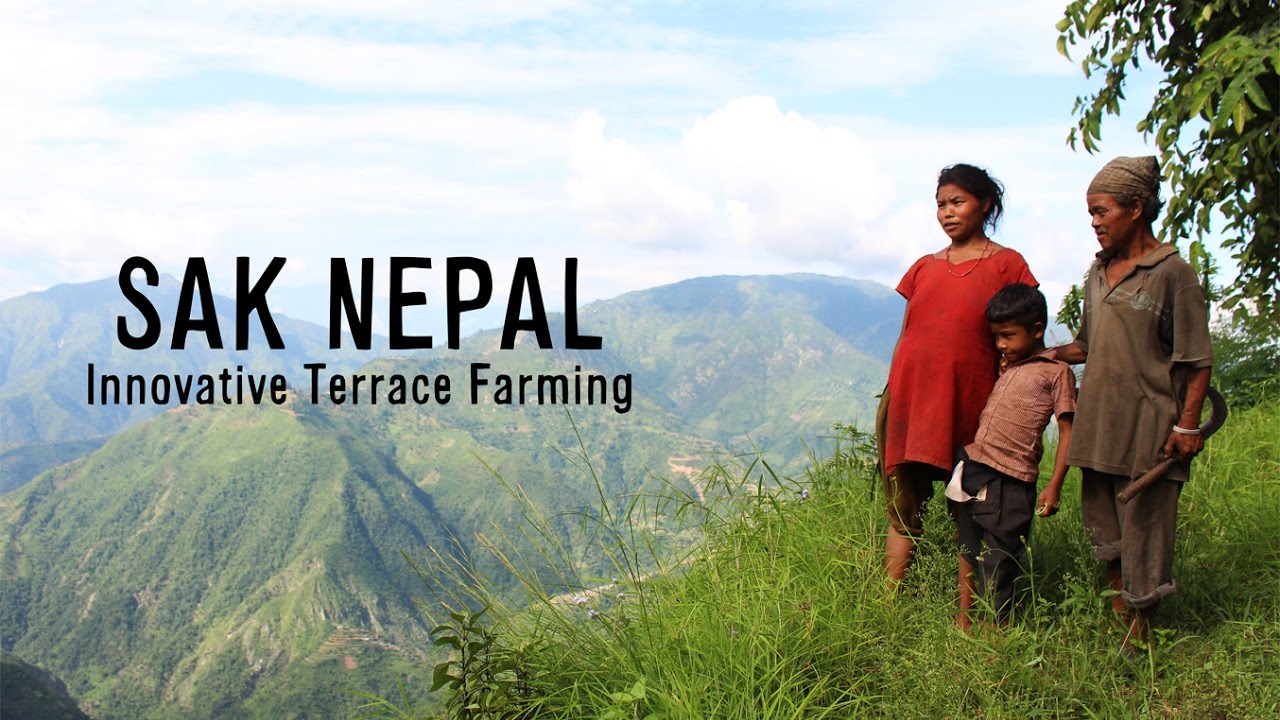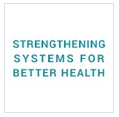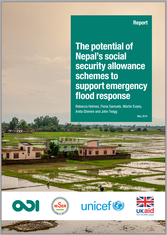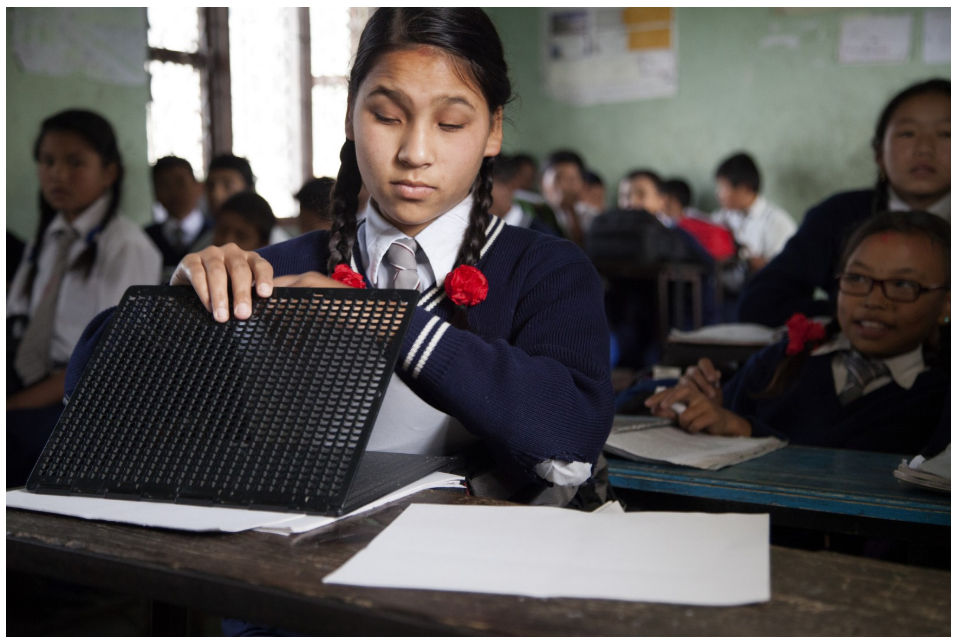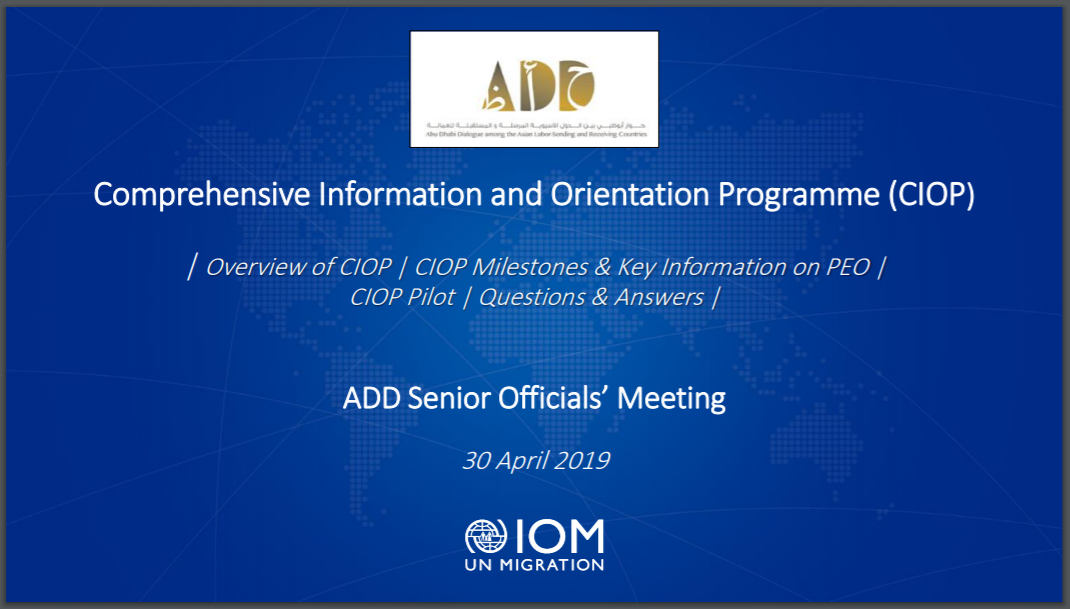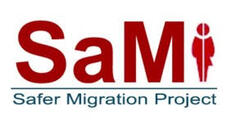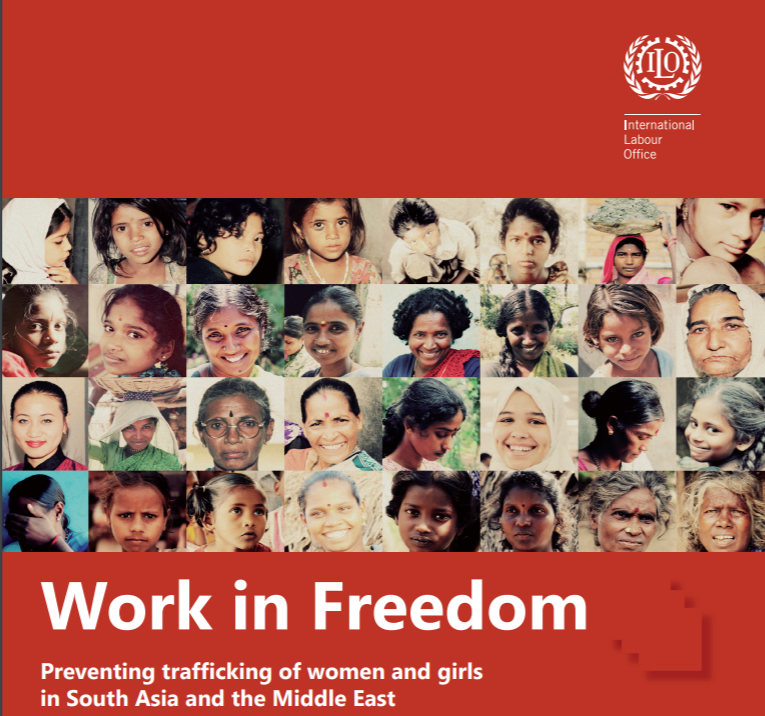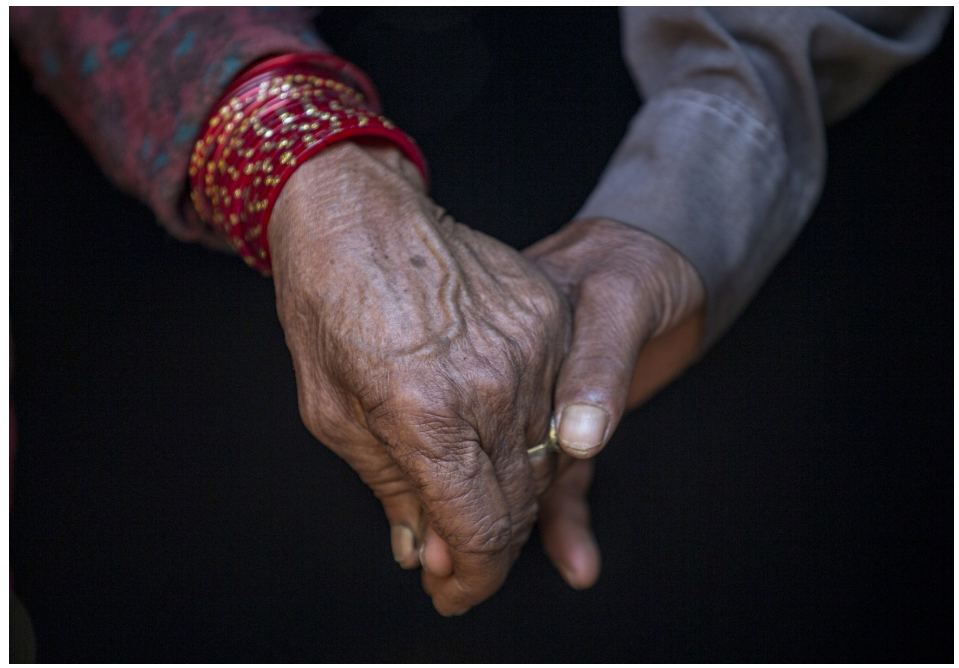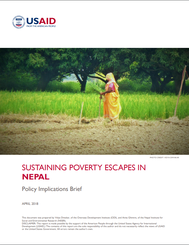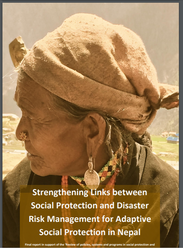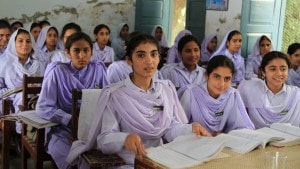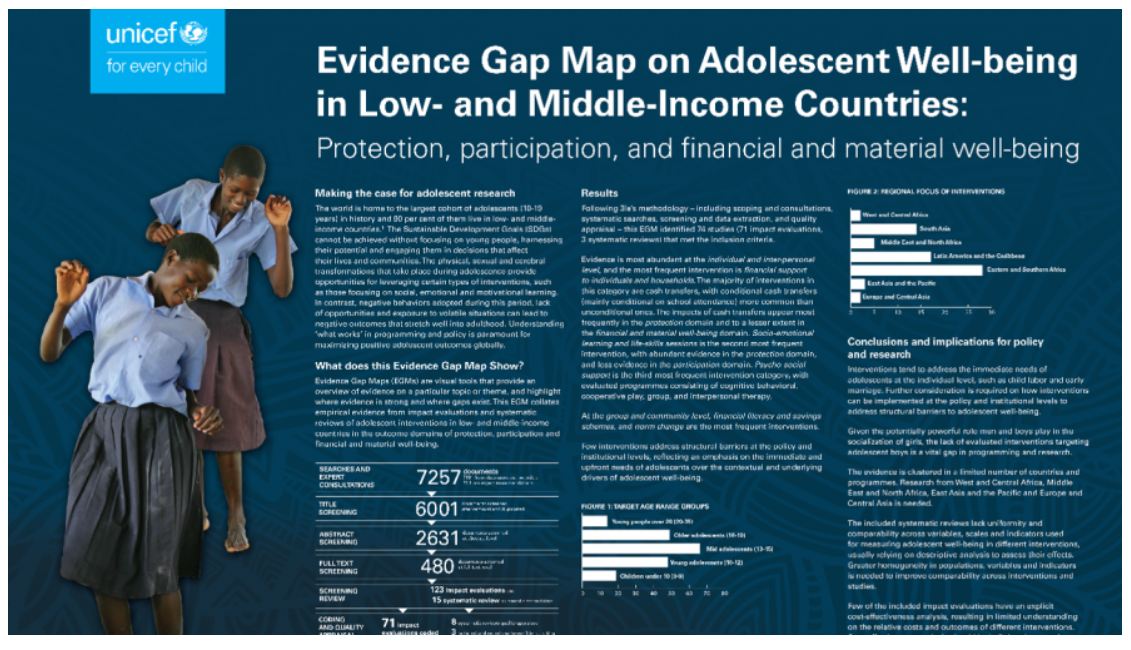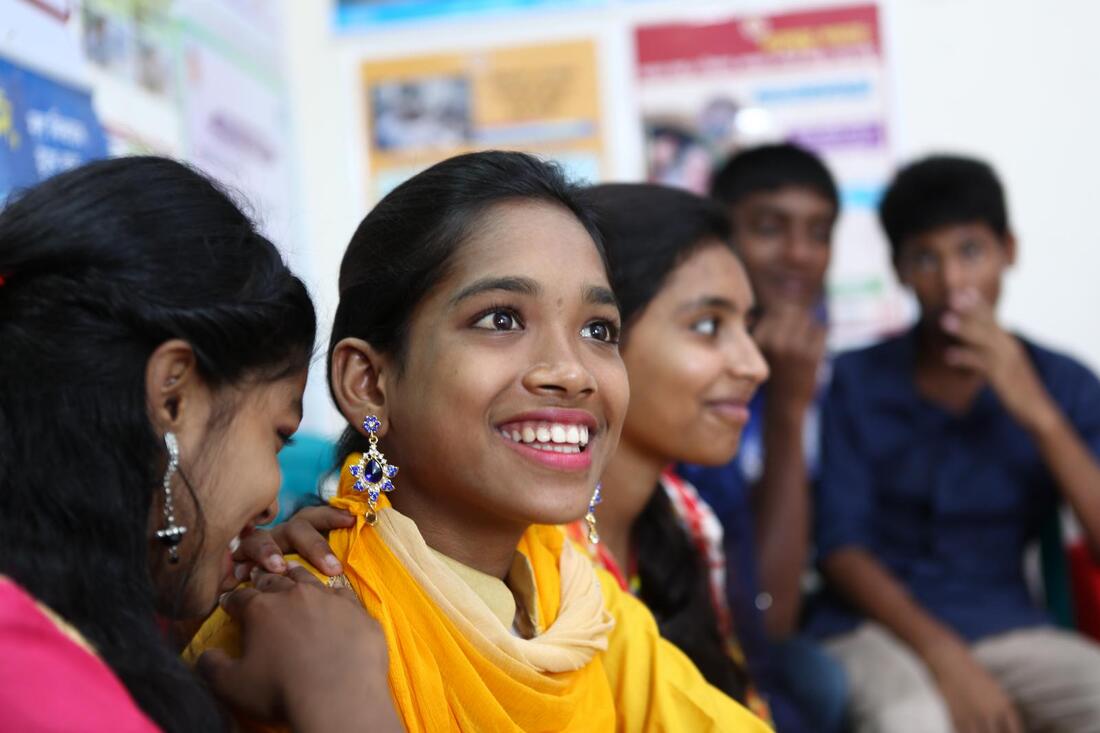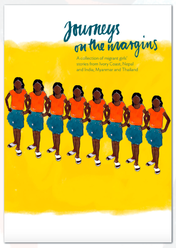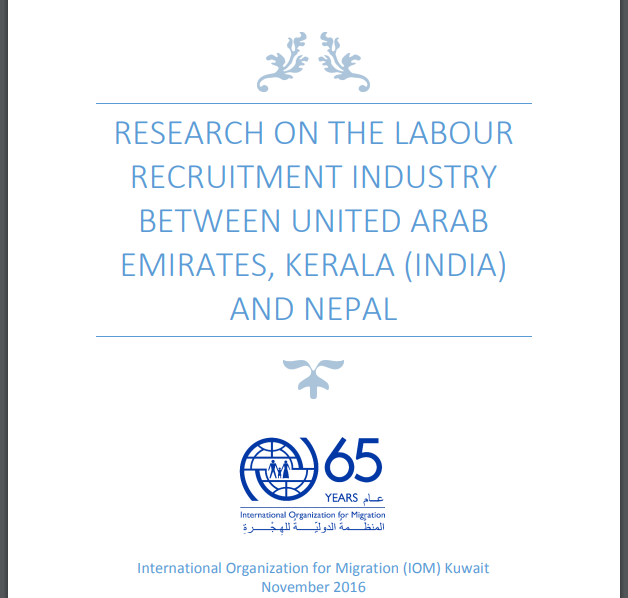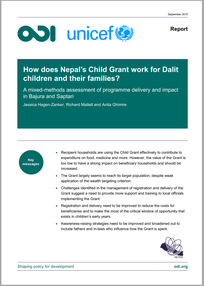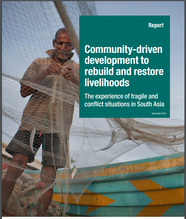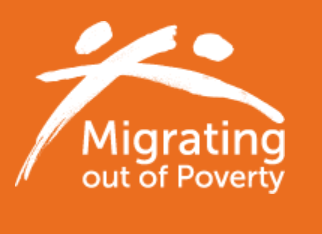Nepal COVID-19 Rapid Gender Analysis
|
Since the onset of the global Coronavirus Pandemic, the Ministry of Women, Children and Senior Citizens (MoWCSC) identified the need to highlight the gender and intersectional impacts of the COVID-19 crisis. A Rapid Gender Analysis (RGA) was conducted to understand the gender differential impact of COVID-19 on vulnerable and excluded groups. The RGA was also conducted to comprehend how existing gender and social inequalities have been exacerbated by the pandemic in the community and in quarantine situations in Nepal.
The RGA was jointly conducted under the leadership of MoWCSC along with UN WOMEN, Save the Children, with CARE Nepal being the technical management lead. The study was conducted using an Intersectional Approach. Along with primary data collection and analysis, the study was also based on the analysis of 50 secondary documents using the Maxqda software from 31 May to 17 June, 2020. |
Humanitarian Policy Group (HPG) Tip of the Iceberg
|
There is increasing pressure on the ‘traditional’ humanitarian community to be more efficient and transparent over its resource flows, the resources and services provided by ‘non-traditional’ actors, including from remittances and local responders, represent a considerable resource and a key asset for people affected by humanitarian crises. Currently, however, these ‘local’ and ‘unofficial’ sources of assistance are difficult to track and are typically not factored into international responses. There has been little analysis at the crisis level to develop a detailed understanding of the levels of resources and how they are received, what these resources are used for and how they complement – or may work at cross-purposes to – formal international flows.
|
Secure Livelihoods Research Consortium (SLRC)
|
The Secure Livelihoods Research Consortium (SLRC) is an eight year global research programme exploring livelihoods, basic services and social protection in conflict-affected situations. SLRC was established in 2011 with the aim of strengthening the evidence base and informing policy and practice around livelihoods and services in conflict. It has the following three components:
SLRC Survey: SLRC’s research is a longitudinal panel survey on livelihoods and access to services, which also explores experiences, perceptions and expectations of the state and local governance. Rounds take place three years apart, with the last rounds of fieldwork completed in 2019. SLRC Migration: The research aims to look at work and livelihood patterns of women staying behind in Nepal when their husbands migrate abroad and what influences their work patterns. It will use Secure Livelihoods Research Consortium’s (SLRC) quantitative data and complement with qualitative fieldwork in two previous SLRC sites; Rolpa and Bardiya with an urban and a rural site in each district. SLRC Research Uptake: The research uptake strategy mainly deals with filling up the gap in the unfinished task of SLRC. It mapped out new policy, power and knowledge contexts and worked to co-construct research evidence and solution. The objective was to help understand what knowledge evidence would be useful for the stakeholders and to help in the design of the upcoming research work that SLRC had targeted to do. |
Strategic Impact Inquiry on Gender in Emergencies
|
Although the humanitarian community has devoted considerable attention in recent years to examining the role of gender in emergency contexts, the ways in which humanitarian action contributes to, or is influenced by, issues of gender equality is also under-examined and leaves much to be understood. In light of these issues, this sutdy commissioned by CARE seeks to engage in a Strategic Impact Inquiry (SII) to inform future program design and policy engagement in the area of Gender in Emergencies (GiE). The goal of this process is to build evidence around the impact of CARE’s programming on two main areas:
a. how CARE’s work in GiE is contributing to advancing gender equality, b. how CARE's own internal organizational processes have contributed to these issues. While the SII has a specific focus on the work of CARE, findings generated through this research hold the potential to contribute to the body of knowledge around humanitarian intervention globally. |
Nepal terrace farmers and sustainable agriculture kits
|
The SAKNepal project intended to test a model to scale up a regional kit of seed packages, tools and agronomic innovations to help increase crop production/income, reduce female drudgery and enhance environmental sustainability for 25,000+ hillside terrace farm households in Nepal (100,000+ people). Most technologies are based on farmer surveys as part of previous CIFSRF research (RESMISA). They are low cost and combined into a commercial menu of options known as sustainable agriculture kits (SAKs). Forty-six products and practices were pre-tested and improved by an NGO (LI-BIRD) using participatory approaches with test farmers of which 20 are being scaled up. Consumer farmers are now purchasing or adopting individual technologies from the menu to meet their own needs. The study looked at impact of SAKs.
|
Advancing Learning and Innovation on Gender Norms
|
‘Advancing Learning and Innovation on Gender Norms’ (ALIGN) is a digital platform and community of practice for sharing knowledge and innovation on gender norms, with a focus on adolescents and young adults.
As part of the ALIGN project, the ‘History and Change’ research series aimed to put together and draw lessons from personal narratives of change and resistance in gender norms, expectations and behaviors as these play out against a backdrop of broader social, economic and political processes in selected countries. |
Analysis of Barriers to Utilization of Maternal, Newborn and Child Health and Family Planning Services
|
There are a number of demand- and supply-side barriers that limit women’s access to and use of MNCH/FP and institutional delivery services. Existing quantitative studies do not provide details on clients’ underlying beliefs, customs, and cultural or gender norms that influence care-seeking behaviors in the project geographic area. Funded under the USAID’s Strengthening Systems for Better Health Activity the objective of this research is to explore unanswered questions about barriers to accessing institutional delivery for MNCH/FP, that exist on both the demand and supply sides to better understand clients’ care-seeking and service utilization. Study findings will assist provincial and local governments, with facilitation and technical support from the Activity. The study takes place in Karnali Province and Banke, Bardiya and Dang Districts
|
Assessment of Nepal's Social Security Allowance (SSA) to respond to shocks
|
The aim of this study is to complement ongoing work on the role of social protection in responding to emergencies. The study uses a mixed-methods research to assess the potential role of the SSA schemes to support emergency response efforts in future floods. Specifically, it assesses the robustness of targeting and coverage in the context of flood response, the social acceptability of using SSA schemes to support emergency response, and capacity and coordination issues in delivering a timely response to a flood-affected population.
|
Shock Responsive Social Security Cash Allowance for Disabled Children
|
The aim of the research is to explore the experiences of children with disabilities and their caregivers in Nepal, including their experience of the 2015 earthquakes, and examines the barriers faced in accessing the disability allowance. Based on this analysis, we provide specific policy recommendations to overcome the high exclusion rates from the scheme, and how the scheme can be used in the future to support emergency relief efforts.
|
Comprehensive Information On Pre-Employment Orientation (CIOP) for Migrant workers
|
This research project assessed the existing Pre-Employment(PEO) and Pre-Departure Orientation (PDO) for aspiring migrants in the 12 Abu Dhabi Dialogue (ADD) countries. Based on needs assessment it formulated a regional module for PEO and a delivery mechanism framework for PDO and PEO to be piloted in selected origin and destination corridor of labour migration in the ADD countries.
|
Social Cost of Migration :
Implications of Migration on Left-behind Women and Children
|
The main purpose of the study is to create a more in depth understanding of social implications of labour migration on wives of migrants and on children of migrants to inform programming by SAMI, Save the Children and other organizations working with families of migrants.and to inform the public discourse on gender norms and migration.
|
WORK IN FREEDOM
|
The ILO – DFID Partnership Programme on Fair Recruitment and Decent Work for Women Migrant Workers in South Asia and the Middle East (Work in Freedom – WIF – in short) is an inter-regional technical cooperation programme spanning for five years and four months (April 2013 – July 2018). The assignment was an independent final evaluation done at the end of the programme. The objective of the evaluation was to provide comprehensive view of the programme achievements, strengths and weaknesses, and most importantly the impact of interventions on key targeted workers in garment sector and domestic work. The evaluation then intended to come up with recommendations to be applied to future initiatives in this area of work.
|
Research on Violence against Women and Girls in South Asia (VAWG)
|
The research aims to address the issue of Intimate Partner Violence (IPV) in South Asia with a particular focus on adolescence and young adulthood. We investigate the ways in which both community-level social norms and broader political economic factors influence the tendency to perpetrate IPV as well as the efficacy of existing programme approaches to address it. The research programme comprises global and country-specific literature reviews, a multi-level quantitative analysis and qualitative and longitudinal data collection done through a research consortium.
|
Resilience, Sustainable Poverty Escapes and Chronic Poverty: Nepal Country Case Study
|
Recent research undertaken for USAID has found that out of households which escape poverty, some are able to stay out, but many also fall back into poverty over time. The overall objective of this research work is to expand understanding of the drivers of these sustained and transitory poverty escapes, in addition to those of impoverishment and chronic poverty, and to draw out policy and programming implications. This research analyzed existing household panel data and identified the extent of different poverty trajectories as well as investigated the reasons why some households experience sustained poverty escapes while, for others, their escapes are transitory and yet others remain trapped in chronic poverty.
|
Review of policies, systems and programs in Social Protection and shock response for adaptive Social Protection
|
The objective of the research was to enhances the understanding of Disaster Risk Management (DRM) and Social Protection (SP) programs and delivery systems to assess how SP programs could improve risk management, preparedness and better respond to shocks.
The work aims to contribute to the continued evolution of social protection and improved shock response in Nepal through the production of recommendations for improving policies, systems, institutions and programs in social protection to tackle a key development in Nepal. |
Transforming the Lives of Adolescent Girls and Young Women (TLAGYW)
|
This 4-year programme puts the spotlight on adolescence as a pivotal life phase with considerable enduring socialization effects and important preparation for key transitions to adult roles, including transitions to work, citizenship, marriage and parenthood. The goal of this work was to improve development outcomes for girls and young women, breaking the cycle of inter generational poverty, and providing a catalyst for change, the returns of which will ripple through wider society. The research examined the capabilities and entitlement framework linked to formal and informal laws, norms, practices and non-actions (discriminatory social institutions), which compromise girls development.
|
Evidence GAP Map on Adolescent Wellbeing
|
This project built an interactive Evidence GAP MAP on intervention and outcomes for adolescents focusing on low and middle income countries. It traces outcomes in the areas of participation, livelihood and protection.
|
UNICEF Gender Action Plan Analysis
|
This 2 year project looks at the status of implementation of Gender Action Plan by UNICEF in the South Asia. Additionally, it also looks at gender mainstreaming within the organisation and the work of the UNICEF offices in South Asian countries.
|
JOURNEYS ON THE MARGINS: A COLLECTION OF MIGRANT GIRLS STORIES
|
The research project looked at the drivers of migration for adolescent girls and the vulnerabilities they face in the migration trajectory. The Nepal leg of this multi-country research looked at Nepali girls in their place of origin, the internal migration to hub city and in the cities in India. By listening to and learning from their experiences, the research aims to identify interventions that could improve conditions for migrant girls — at departure, during transit, and upon arrival — as they seek factory work, domestic work, or refuge in a different country altogether.
|
Study on labour recruitment and supply chain process
|
Commissioned by IOM, the main objective of this mixed methods study is to develop a comprehensive and detailed picture of the international recruitment network between UAE and two countries of origin, India (state of Kerala) and Nepal. The research includes an analysis of both the formal and informal aspects of the network, looking at how employers in UAE engage with recruitment agencies either in the country of origin or destination, the relationships between agencies in countries of origin and destination, and the relationships between agencies in countries of origin and their sub-agents and prospective labour migrants. The project aims to understand the formal and informal structural underpinnings of the industry and provide feasible, practical recommendations to address the industry’s structural flaws and reduce opportunities for unethical recruitment practices to occur.
|
Impact of migrant's network on the labour market of receiving countries
|
Commissioned by IOM Kuwait, the objective of the two- country research project is to understand the impact of migrants' social network in the function and structure of the labour market in Kuwait. It aims to compare "network effect" from a country which has a large population in Kuwait ( India) and another which has a smaller population working in Kuwait (Nepal). The study looks at whether social networks ends up “creating” employment positions that may not actually be fully needed in the labour market and/or if they may have an impact on the relevance of the qualifications of the person who ends up in the position.
|
Assessment of the impact of Child Grant on Women’s Empowerment in Nepal
|
Social protection has become an increasingly prominent public policy tool in Nepal over the past two decades. Social protection, particularly social insurance, has a long history in the country, with social transfers even provided throughout the Maoist insurgency between 1996 and 2000.
This study focuses on two districts; Bajura and Saptari, using a mixed-method approach to identify implementation barriers and recommend ways to improve effectiveness of the child grant. |
Community Driven Development Approach in Conflict and Fragile States
|
Community-driven development (CDD) has become an increasingly popular operational approach for economic reconstruction, sub-national service delivery, fostering social cohesion and bottom-up state building in post-conflict and fragile states. This research aimed to expose the lessons learnt through the case studies of CDD approach in 4 countries. The outcome of the research was expected to help in guiding the designing and implementation of user-friendly CDD-livelihood interventions in these post-conflict and fragile settings.
|
Structural Constraints and Agency Among Rural-Urban Migrant Construction Workers in Nepal and the Impacts of Migration on Household Poverty
|
Migrating out of Poverty research programme consortium focuses on the relationship between internal and regional migration and poverty in Africa and Asia. It is funded by the UK’s Department for International Development and coordinated out of the University of Sussex.
The goal of Migrating out of Poverty is to maximize the poverty reducing and developmental impacts of migration and minimize the costs and risks of migration for poor people. Although migration does not necessarily lead to such positive outcomes, Migrating out of Poverty is working to produce research which sheds light on the circumstances in which migration can most effectively reduce poverty. |

